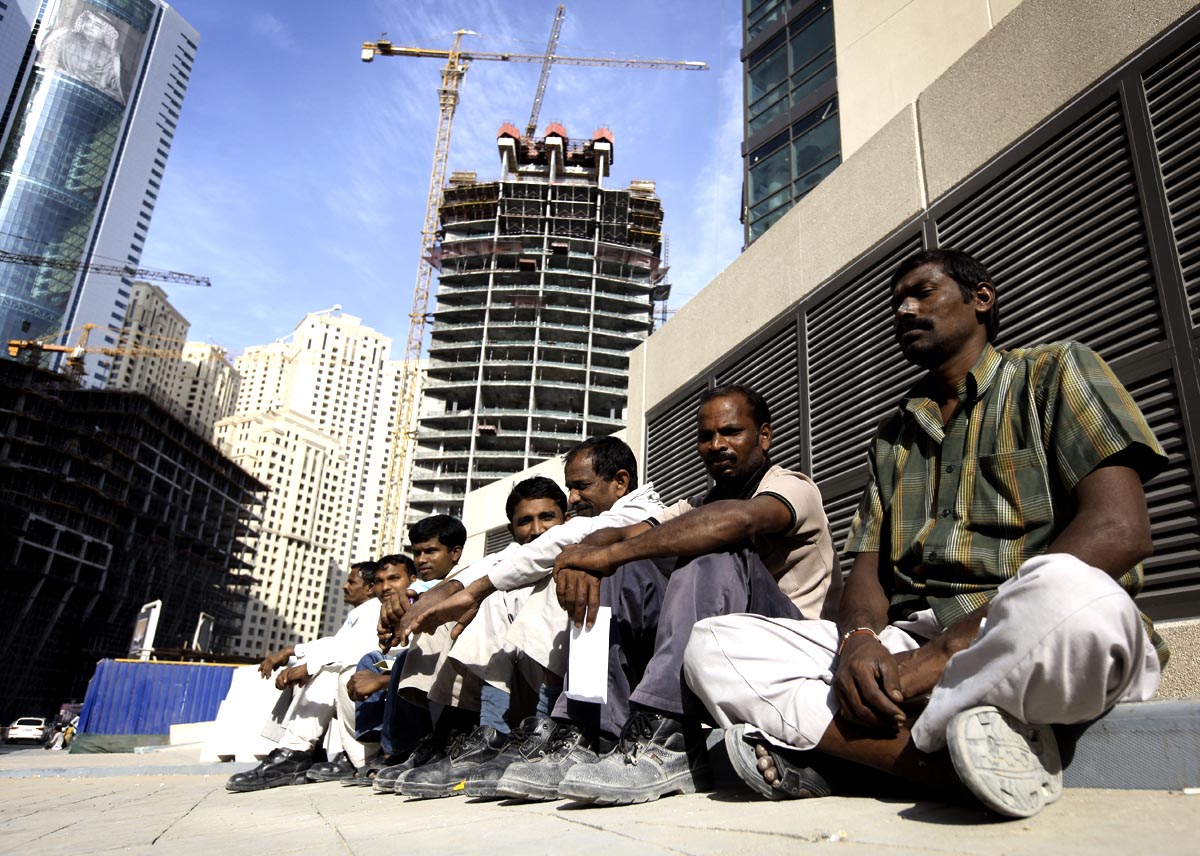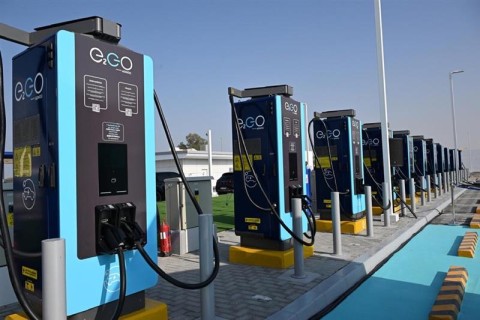A member of the Federal National Council yesterday (Tuesday) proposed that the UAE impose a tax on the billions of dirhams which foreign workers send back to their home countries every year.
“The Federal National Council and the Ministry of Finance should produce a package of creative measures to bolster the country’s revenues, including a tax on remittance of the billions of dirhams which foreign workers send back to their home countries every year,” Ali Jasem, a veteran member from Umm Al Quwain, told the House as the audit reports fro 2012 and 2013 were debated.
Asked whether authorities will proceed with the tax, which would mark a major shift in policy, potentially raising costs in the economy and reducing the supply of foreign labour on which much of the UAE’s boom is based, Obaid Humaid Al Tayer, Minister of State for Financial Affairs, told Gulf News it was a personal view of the member of the House. “The Government may not comment on issues of such significance before they are throughly studied in terms of their socioeconomic impacts.”
But the proposal reflects growing concern in the UAE that oil revenues are declining, that they may be becoming too dependent on foreign workers and are losing too much of their wealth in the form of remittances abroad.
Jasem said that a fee collection system has to be developed so that these revenues are properly levied by the federal authorities concerned.
A circular discussing the remittance tax proposal and requesting feedback was sent to some banks and financial institutions in the UAE in a 2013 pilot project.
About 80% of the population of roughly 8 million in the UAE, the second biggest Arab economy, are foreigners, many of them from south and Southeast Asia. They fill almost all strenuous or relatively low-paying jobs in industries such as construction and services.
Employees in the UAE transferred a net Dh45.1 billion ($12.3 billion) out of the country last year, up from Dh41.2 billion a year earlier, according to central bank data.
Hamad Al Rahoumi, a member from Dubai, said the UAE’s efforts to diversify its economy beyond oil have been built partly on its low-tax environment — there is no income tax — so it will hesitate to introduce any taxes.
“Remittances are key for foreigners in the UAE. A lot of them come here to support families back home,” said Al Rahoumi said.
He added if a remittance tax is imposed, the attractiveness of country will be under threat. “So I do not think any such levies will be imposed without in-depth studies of their immediate and long-term impact.”
The House passed the 2012 and 2013 end-of-year audit reports, but members complained that there were numerous problems in several federal departments.
The majority of these were the same as in previous reports. They included issuing acknowledgement receipts for non-delivered medical equipment, which led to failure of the Ministry of Health to levy more than Dh135 million of fines against suppliers.
The audit report also highlighted more than Dh1.5 million of unpaid medical bills at Saqr hospitals in Ras Al Khaimah.
The 2013 audit also showed the Ministry of Education’s payment of salaries to employees whose services had been terminated a long time ago. The Ministry of Education also failed to collect more than Dh7 million in fees owed by expatriate students.
The audit report also showed the Labour Ministry’s failure to collect more than Dh6 million in fines from sponsors of more than 4,000 workers.
Source: Gulf News












